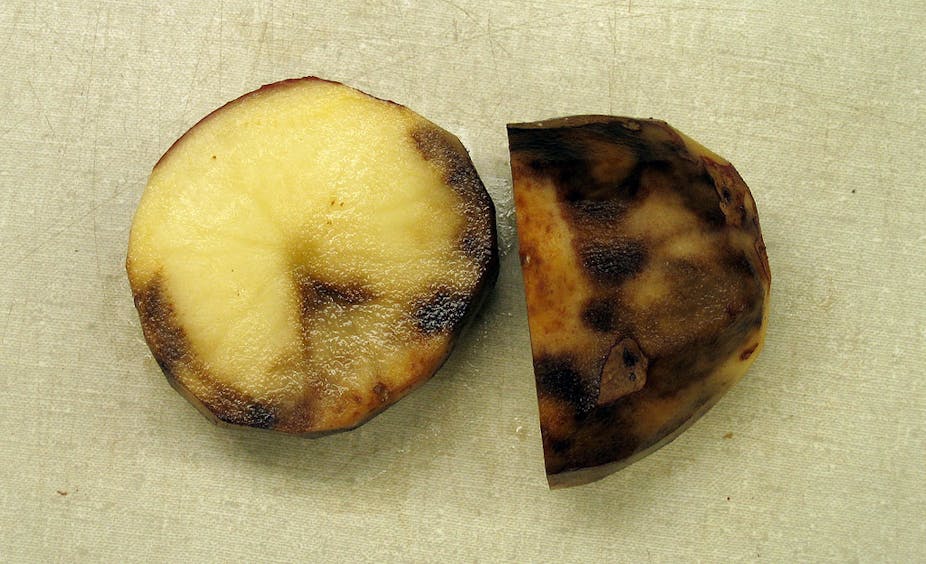Scientists have unlocked the complex genetic code of the potato, paving the way for new techniques to breed a tougher, more disease-resistant tuber.
Potatoes are crucial to global food security but are vulnerable to drought, soil salinity changes and diseases like blight, which crippled European crops in the 19th century and helped cause the Irish Potato Famine.
The Potato Genome Sequencing Consortium, an international group of scientists, reports in the latest edition of the journal Nature that it has finally sequenced the entire genome for the potato Solanum tuberosum.
The potato’s genetic code is surprisingly complex and features 39,000 protein-coding genes, compared to around 21,000 for humans. The researchers identified over 800 disease-resistance genes.
Another breed of potato, identified as RH, was only partially sequenced but still provided valuable data, the scientists said.
“The potato genome sequence provides a platform for genetic improvement of this vital crop,” the paper said.
Professor Raymond Rose, an expert on plant genetics from the University of Newcastle’s School of Environmental and Life Science, said the potato breakthrough was significant.
“Potatoes are a really important food crop. The excitement is that increasingly people are finding new angles on ways you can improve its tolerance to drought and salinity. It opens up a whole new world,” said Professor Rose, who was not involved in the research.
“You have to do the whole genome to see how everything works together. By being specific, you get much closer to being able to enhance the capacity for breeding improvement in plants.”

